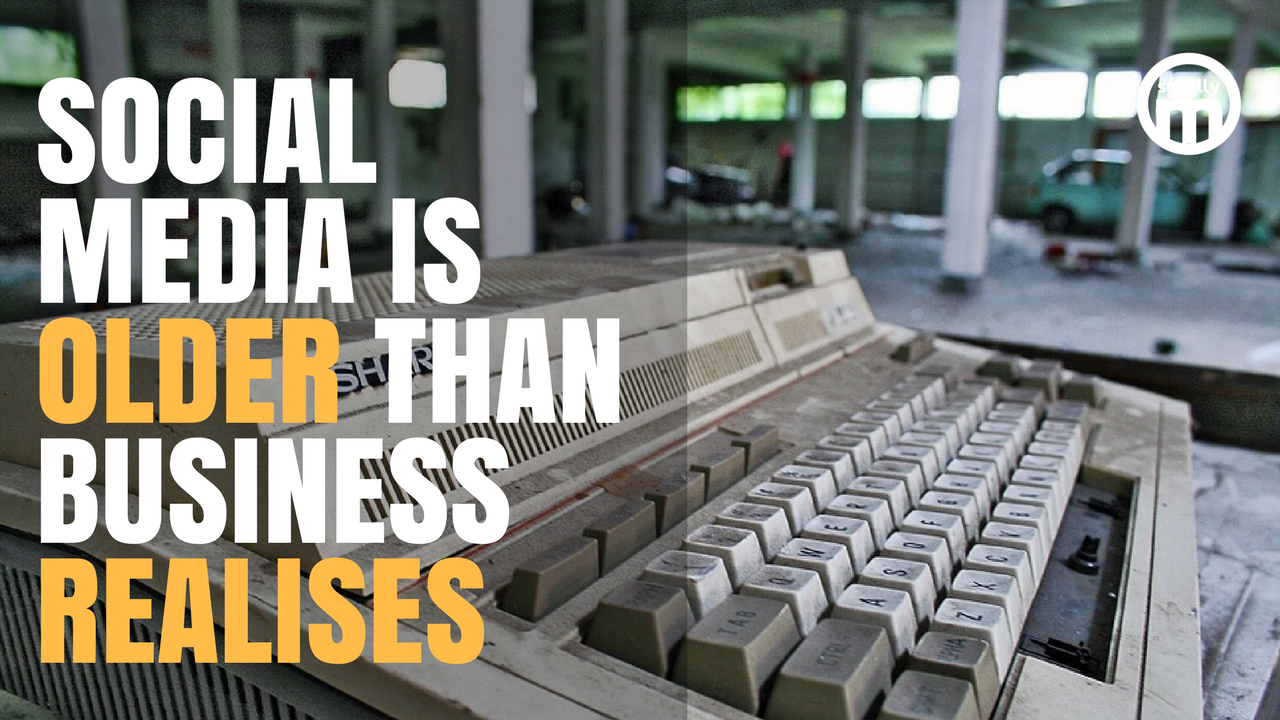Whilst the article had a few good points, such as not trusting an 'expert' who tells you to leave your social media in the hands of an intern, or not believing them when they say you have to be on every platform going (both of which are very valid points which I agree with) it rested heavily on the premise that no-one can really call themselves an expert on social media because it's such a new medium.
I agree that with their presumption that no-one should call themselves an 'expert', but I do believe that it's perfectly acceptable for other people to label you as such. Why wouldn't you want people to recognise you as an expert in your field without having to plaster it across all your profiles? It's one of those titles that's earned, whereas from my point of view, the title I give myself should just describe what it is I do, speak, consult and train. I don't think for one minute that you can 'expert' for a living. The majority of the group were in agreement with my standpoint here, but I was really surprised at what they actually disagreed with. Most of them disputed my suggestion that social media may have been around longer than they might think. In fact many of them felt that it was something that had only been on the radar for the last five years or so. I was actually quite shocked that a community of business people had the opinion that there was effectively nothing in existence before around 2012. So much so, because they actually asked me how millions of people had gravitated towards the platforms in such a short period of time! My claims that it was actually over a decade old fell on deaf ears, which may also explain their reluctance to accept the existence of actual experts. So it prompted me to write this, in case this isn't just an isolated incident and there more amongst you that are unaware that social media has been around since the advent of the web, long before the first web browsers even appeared. If you've just snorted in disbelief like the group I was talking to practically did, then this is for you. Before Google Chrome, Firefox and Explorer were even thought up, back in the early 1990s you could still connect to a wide range of bulletin and message boards through your dial-up modem. The whole purpose of these rudimentary platforms was about people reaching out to share knowledge and experiences. Browsers evolved out of these platforms and by the mid 90s you could access something called a 'website' for the first time. Unlike their predecessors, these new sites weren't just text-based either, they had layouts, images and links to other sites too. By the end of the 90s thousands of businesses were suddenly positioning themselves online, believing the web to simply be another advertising medium like television or radio, but considerably cheaper than the advertising they'd been paying for over the last few decades. Famously, many of these companies that had established early online stores went out of business in the dotcom crashes of the early 2000s when we were told that the internet bubble had burst. In my opinion, the mistake that many of them made was to believe that the web could be easily dominated by business, with little thought to the people using it for social means. Unfortunately, that's a mistake that is still being made today, if you ask me. The early web was not about selling and it still isn't today. So while companies continued to pour cash into websites and ecommerce, the beating heart of the web was still very social. Some of the most prominent sites on the web at that time were actually discussion forums, the internet thrived on conversation and communication. The first and self-titled blogging platform, called Blogger was launched in 1999. Contrary to popular belief, it wasn't created by Google, but was purchased by them from Pyre Labs in 2003. This was the first platform that not only granted people the opportunity to publish articles or write blogs about their interests, personal feelings and opinions, but also added the social medium of 'comments'. It also allowed people to create accounts for the first time on an established platform, without having to write their own code, navigate domain purchases and hosting. It was plug and play, allowing people to write and reply to each other in minutes. In the 2000s the social boom really exploded though, with sites like Friendster, MySpace, LinkedIn, Wordpress, Facebook and Twitter launched in quick succession and all by 2006. Google+ joined them much later in 2011. Why have they achieved and continue to enjoy such monumental success? Because they're far more efficient at facilitating human interaction than their predecessors. Because they're also more in-keeping with the environment and ecosystem of the web, which was built upon human interaction and communication. This also explains why businesses and ecommerce sites still have to put a huge amount of effort into being seen, paying for advertising and getting people to buy from them. Because it's not the natural evolution of the online species. If you can understand and appreciate this at a very basic level, then you have the foundation to mastering social media online for your business. It should form the whole basis upon which your accounts and campaigns are founded. The Internet was formed as a means for people to communicate and it will continue to evolve to do so, despite being adopted by business. It should also mean that when an 'expert' refers to the advent of social media being over a decade ago, you'll take him more seriously in future, right?
0 Comments
Leave a Reply. |
Archives
October 2023
|


 RSS Feed
RSS Feed
